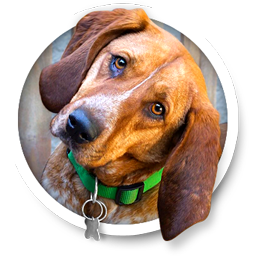

If you start me up, I'll never stop, so the lyrics go to the Rolling Stones: "Start Me Up." Hi Cayenne here and well that's all good until your car doesn't start. So yes, today we are going to start you up about ignition systems. Let's get barkin'!
When you start up your gasoline engine car, you may not know it's using the same ignition principles as it has for decades. You have spark plugs that require enough power so a spark can jump across a gap at its tip. Years ago, a vehicle's 12-volt system had to produce 15,000-25,000 volts to do that, so engineers came up with something called an ignition coil that bumps up the voltage. It also has to be done at just the right interval, which is called timing.
The first systems had a distributor, a mechanical device with a rotating disc that switched the power to the ignition coil on and off. That higher voltage was then sent to the spark plugs at the correct time interval. But the mechanical "points" had to be replaced and adjusted every 12,000 miles/20,000 kilometers. Engineers later replaced the switching mechanism with solid-state ones, but they still needed replacement after 120,000 miles/200,000 kilometers.
The next evolution came in the 80's when the distributor was replaced with a couple of sensors that talked to a computer. This "DIS" (distributor-less automotive ignition system) was a big advance. Plus, it didn't use just one ignition coil for all the cylinders. It had coil "packs" that each provided spark to two cylinders. That way, the voltage could be boosted even higher, to 30,000 volts, which helped engines be able to ignite a leaner fuel/air mixture.
Even more improvements have recently come. Now, instead of coil packs, a coil is attached to each spark plug. No more spark plug wires means less maintenance. Plus, a stronger, hotter spark of 50,000 volts can make an engine more reliable, increase fuel economy, and reduce emissions.
No matter what ignition system your vehicle uses, your vehicle service facility has a staff of technicians trained to work with the latest technology. Make sure to maintain your vehicle regularly so you can fully take advantage of these modern engineering marvels.
Now that you have all the information, maybe these lyrics will stick.
"If you start me up, I'll never stop" ~ Rolling Stones
Cayenne

Allied Auto Works
2073 Grant Road
Los Altos, CA 94024
6509687227
http://alliedautoworks.com